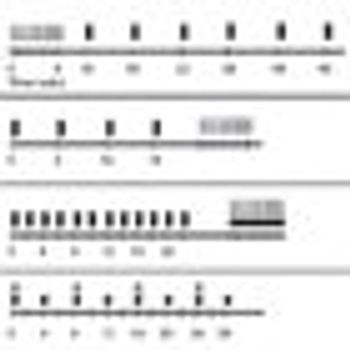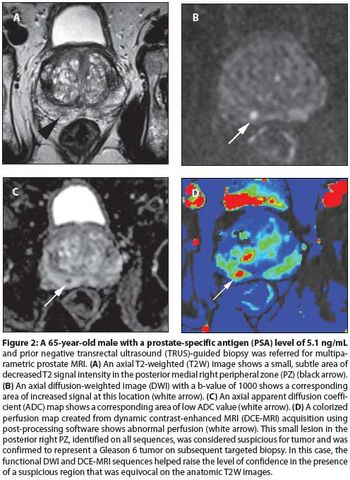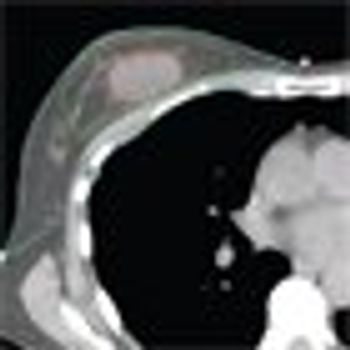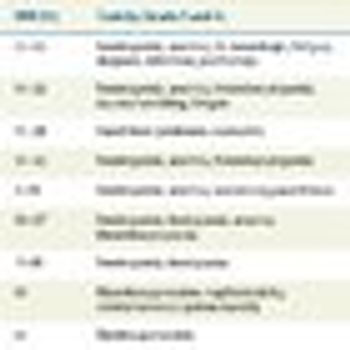
A turning point in therapy followed the observation that patients with AO tumors with chromosome 1p and 19q codeletion had better outcomes when treated with irradiation and PCV than did non-codeleted anaplastic oligodendroglioma patients.

Your AI-Trained Oncology Knowledge Connection!


A turning point in therapy followed the observation that patients with AO tumors with chromosome 1p and 19q codeletion had better outcomes when treated with irradiation and PCV than did non-codeleted anaplastic oligodendroglioma patients.

In light of the high bar that must be met for results to be truly practice-changing, and of the long period of time before survival results are mature in an indolent disease, the primary endpoint for clinical trials in anaplastic oligodendroglial tumors needs rethinking.

Hypofractionated external beam WBI seems like a great option until the APBI data mature from NSABP 39/RTOG 0413. In the meantime, we will have to see whether the ACA’s mission to bend the cost curve in the face of added demand for cancer care will succeed and how our treatment decisions will be affected by this new healthcare model.

APBI is a technique that offers women with early-stage breast cancer a choice. The preponderance of evidence supports the efficacy and safety of this technique, and it should continue to be offered to appropriately selected patients on and off protocol.

The concept of multiparametric MRI comes at an important time in the history of prostate cancer screening. It is a method that provides anatomic information about the location, number, size, and risk of prostate cancers. It permits more accurate targeted biopsies that will improve the quality of tissue obtained, thereby reducing the rate of upstaging associated with random biopsies.

Multiparametric MRI is a promising tool for identifying cancer within the prostate. It has the potential to drastically change the way prostate cancer is staged and treated. However, work remains to make this technique reproducible and accessible to the community-based radiologist and urologist.

Therapy for recurrent ovarian cancer is not curative, and presumed overall survival benefits of standard strategies are uncertain and often based on low-level evidence. Treatment toxicity and patient quality of life should be considered at all points during disease management.

It is important to help patients with recurrent ovarian cancer recognize and acknowledge when further therapy is likely to be futile. For some patients this might occur very early in their disease course, while for others it may be after many years of treatment.

Just as high-quality research has focused on limiting the physical toxicity resulting from successful treatment, future research should focus on mitigating the negative effects of financial toxicity without affecting disease-related outcomes.

Only the possibility of increasing survival with better tumor localization and staging is probable with multiparametric MRI-and improved survival with MR imaging in prostate cancer has not been shown in a clinical trial or meta-analysis to date.

Although important questions still remain regarding chemotherapy choice, sequence, and dosing, the answers to which will require additional large phase III trials, radiotherapy alone is no longer appropriate therapy for 1p/19q codeleted anaplastic oligodendrogliomas.

Our aims in this article are to describe the various imaging sequences that comprise the multiparametric MRI exam, as well as to review current literature on the strengths/weaknesses of these sequences; to delineate strategies for standardizing interpretation and reporting of MRI results; and to expound on the role of prostate MRI in clinical practice.

Accelerated partial-breast irradiation is a shorter, alternative radiation technique for select patients with favorable early-stage breast cancer. We review here the different modalities of delivery and discuss the possible benefits and harms associated with these treatments.

Emerging therapies in the management of ovarian cancer have resulted in a shift in paradigm, including in the appropriate time to institute therapy, and in the selection of therapy. This review focuses on chemotherapy and emerging biologic agents that present a therapeutic option for patients with recurrent ovarian cancer.